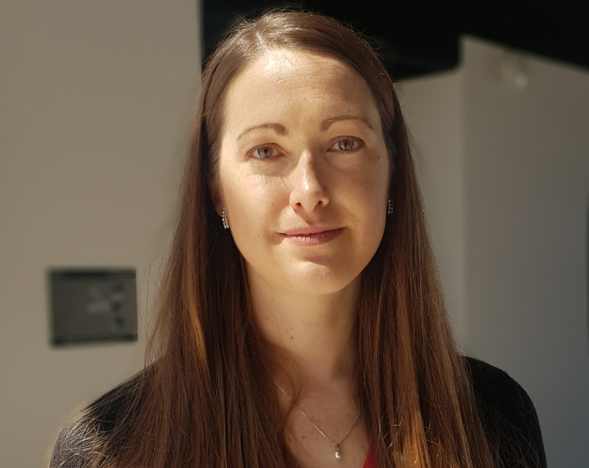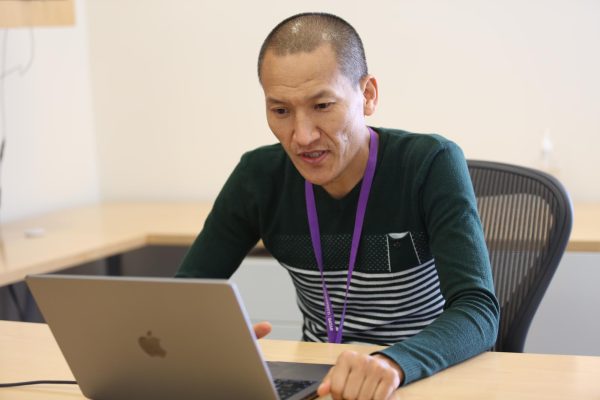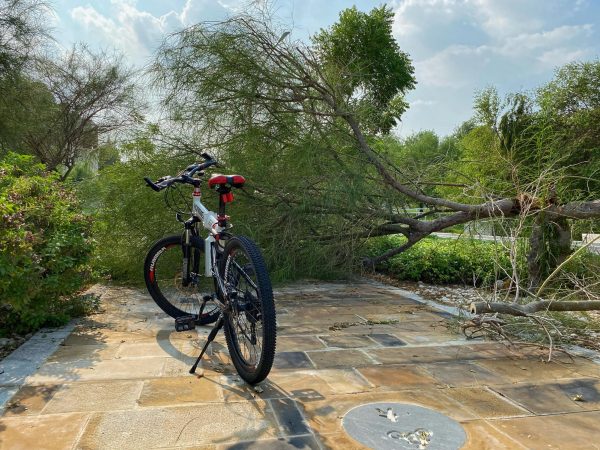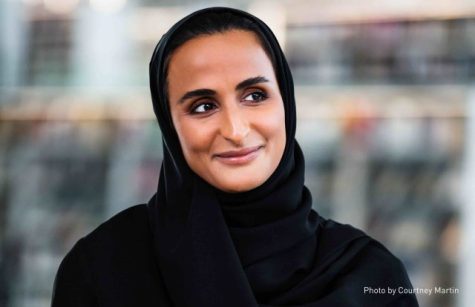Q&A with Political Geographer Natalie Koch

Dr. Natalie Koch photographed by Saad Ejaz.
Politics and geography were at the center of Natalie Koch’s life as she grew up in Arizona on the contentious border between the United States and Mexico. Koch, now 33, is a political geographer and her work ranges from geopolitics and nationalism to sports and sustainability in Central Asia and the Gulf.
Koch talked to students and staff at a community meeting on March 10 at Northwestern University in Qatar. Using an ethnography report she wrote on the 2016 UCI Road World Championships held in Doha as an example, she challenged the idea in the media and academia that Qatar’s investment in sports is driven by its pursuit for soft power. She said that narratives such as these assume that the state is a cohesive entity. They also undermine how geopolitics act on multiple levels, including the interaction between spectators, athletes and local hosts. “It just assumes that power, politics and statecraft is just confined to people in business suits, living in capital cities and sitting on government desks,” she said.
The Daily Q sat down with her to discuss her work in more detail. The interview has been condensed and edited.
How did your interest develop in geography in the first place?
NK: I started with geography really early. It’s not a common discipline in the United States. A lot of American students just encounter geography as a fourth-grade mapping class and that’s what they think of it as. After World War II, a lot of geography departments closed and so it’s weird to fall into it. I had the fortune of falling into it during my undergrad at Dartmouth College. It’s the only Ivy League that still has a geography department. By freshman fall I was already taking two classes in it.
How did politics and geography intertwine for you?
NK: I think when you’re studying places like Russia, or for me as an undergrad Kazakhstan in particular, it’s hard to not pay attention to the politics. I did my first research project on the Aral Sea disaster. The Soviets diverted these rivers away from the sea and they were doing that to grow cotton and other water intensive things that shouldn’t be grown in the desert. So, the classes I was taking were teaching me to not just look at the environmental problem but to say what’s the political reasons for this. And a lot of it could be traced to Soviet politics and how they changed over time. I always had an interest in these kinds of questions.
Why is sports geography not taken seriously by academics?
NK: Geography is a funny discipline. A lot of people take themselves very seriously and want to focus on social justice issues, like inequality, and really emphasize a more activist approach to that kind of research. Something like sports that looks fun, it’s just kind of treated as not serious enough. Obviously, when you pull that back and you say, “well what are the injustices that are playing out when they are kicking out residents and demolishing the favelas in Rio?”
People are also dismissive in the classroom [of sports] and that’s why I really, really like teaching with and through sports. A lot of faculty get these student athletes and just think you are not a serious student. I ended up with these students from the lacrosse team and they had a very deep understanding of citizenship and indigenous identity politics in Canada through their experiences of lacrosse.
How can sports geography bridge the gap between academics and the public?
NK:Frankly, a lot of scholars are just fixating on those niche topics. They just say the same thing over and over again. Just a stereotype but one of the big things is that there is inequality in America. Yes. Yes, there is. We know that. Saying the same thing over and over in really negative terms is not really helpful in reaching broader audiences. One of the things about sports that is powerful is that we can we can see how this works in a more careful way and engage people in terms that they actually understand really well instead of just preaching. Its more digestible and also more familiar.
How is anthropology different from political geography?
NK: Right now, there’s no indication of a place called Qatar. There’s nothing here that will visually que us to that. So how do we imagine that we are and understand ourselves to be in this place? How do we understand the map of Qatar to be fitting in these certain boundaries? How do we challenge that? That sort of more theoretical approach to how global space is imagined and contested and lived is something that geographers are more interested in.
But the method that political geographers are using today is very much tied to what anthropologists have traditionally done but that wasn’t always the case in geography. It’s only in the last 25 years that geographers are really doing this kind of work more intensively. Before it was more like statistics and mapping.














